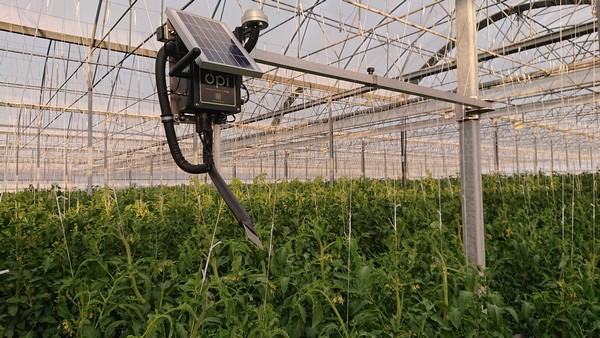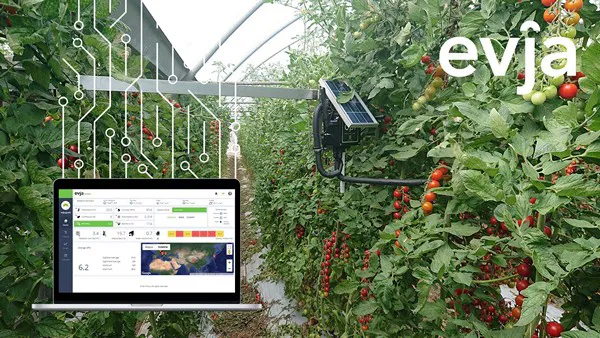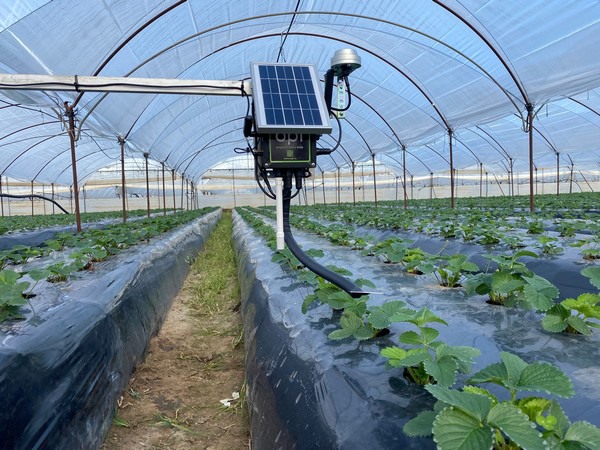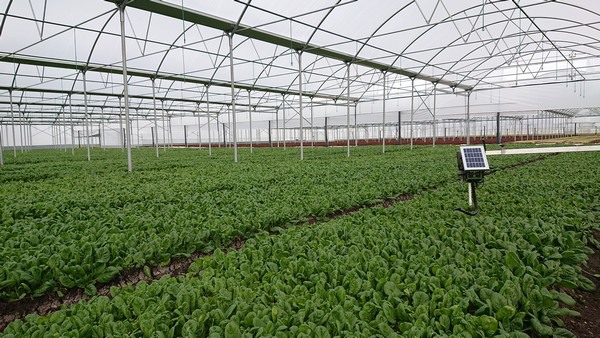Evja, which has been committed to implementing a technological ecosystem and active in the planning and development of services and digital products for agricultural companies since 2015, reports having obtained from the Italian Patent and Trademark Office the patent for:
- an electronic system for producers and agronomists comprising of a server that provides information helping producers and agronomists in the decision-making process (Patent #102020000009733);
- an electronic system for producers and agronomists comprising of a multitude of devices to detect agronomic and soil, and weather data (Patent #102020000009739).
These patents help widen the collaboration with operators from the agricultural world and research centers. After other positive experiences, the Evja technology represents a strong innovation for the collection-management-validation of agricultural and environmental data, which are at the basis of strategic and operational decision processes.

Tomato greenhouse. Photo supplied by Evja.
The general purpose of this invention is to provide an electronic system that is easy to install and reconfigure, that provides suitable data, and that is safe. The claims made in the patent have been recognized as valid and relevant for the purpose indicated. The acquisition of these patents is proof of the high level of quality, specialization, and technological capability of the company and are beneficial to its image of reliability and scientificity.
The two fundamental values for a patent to be valid are originality as the result of an inventive process and industriality, i.e., the capability of being technically manufactured and of leading to an immediate result generating practical effects.

Tomato greenhouses. Photo provided by Evja.
Why is it important to patent?
A patented technology:
- contributes to certifications of various nature
- guarantees data collection processes and validates modeling
- is considered an intangible asset in sustainability reports
- is considered a positive indicator for the realization of funded projects
- facilitates the combination of multiple technologies
For Evja, patenting was a decision made to enter the market with all its papers in order, but also an exam to verify and confirm the content of its propositions as well as the degree of scientificity achieved.
Patenting is rather widespread in Europe, and it enables the transfer to users of solutions and innovations meeting valid and tested requirements in a clear manner. Evja's chief technology officer (CTO), Antonio Affinito, strongly advocated the rather complex patenting procedure in order to provide the agricultural world with systems and processes recognized for their degree of innovation.

Strawberry greenhouse. Photo provided by Evja.
How to best valorize a patent?
Evja's OPI system supports decision-making that integrates modern Internet of things (IoT), big data analysis, and artificial intelligence technologies into a single Cloud platform. The purpose is that of creating conditions so that technologies can 'work in a team,' i.e., create a technological ecosystem thanks to which the different climatic, agricultural and environmental information can dialogue.
By choosing to invest in research and patents to protect its intellectual capital, Evja will maintain its original purpose to innovate, confirming that a scientific approach is needed in agriculture to analyze the multiple factors that determine the various scenarios.
But it is not enough. The language of digital technology and necessary knowledge can represent a barrier and, if they are not tackled, they can make both technological transfers and collaborations difficult.

Baby spinach greenhouse. Photo provided by Evja.
Evja immediately grasped this need and has always helped with the transfer of the necessary knowledge to growers interested in precision agriculture. In addition, the resilience of the agricultural environment and the challenges brought about by climate change require ongoing support, practically in real-time.
This patent enables to further widen the collaboration between Evja, research centers, and agricultural businesses. The patented technology is a point of strong innovation in the development of agricultural processes aiming at economic and environmental sustainability.
For further information on the patent and its applications: [email protected]
